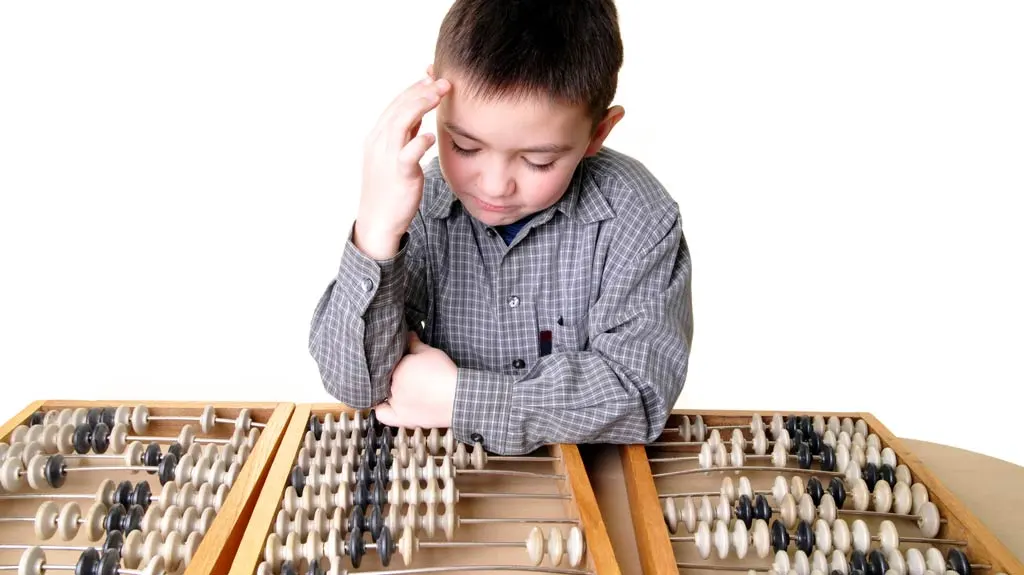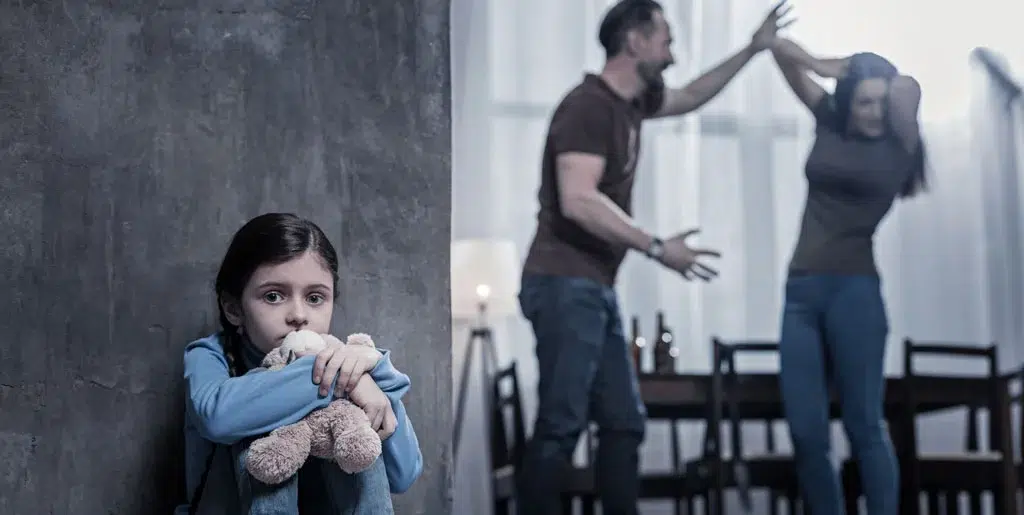
Childhood Trauma Test
Why Test for Childhood Trauma?
Table of Contents
The Adverse Childhood Experiences Test (ACE Test) is a tool that can help identify ACEs in a person’s life. It is not a diagnostic tool, but as a childhood trauma test, it can be used to help start a conversation about experiences that may have been traumatic or difficult.
Getting help from a healthcare provider or mental health professional is important if you are experiencing distress related to ACEs. They can provide support and resources that can help.
Keep reading to find out more about childhood trauma testing, and how Emerald Isle can offer the right setting to help you move past trauma and into a life full of positive experiences!
Free Mental Health Assessment
What is an ACE?
A childhood experience that may have an impact on a person’s life is called an adverse childhood experience (ACE). There are many different types of ACEs, including emotional, sexual, and physical abuse; neglect; domestic violence; parental substance misuse; poverty; and incarceration.
Research has shown that the more ACEs someone has, the greater the risk of developing health problems throughout their entire life. This includes chronic diseases such as heart disease, cancer, stroke, and diabetes.

ACE childhood trauma test
1. How much support did you receive from your parents or caregivers when you were growing up?
2. How often were you physically abused by your parents or caregivers when you were growing up?
3. How often were you emotionally abused by your parents or caregivers when you were growing up?
4. How often did you witness your parents or caregivers being physically abusive to each other when you were growing up?
5. How often did you witness your parents or caregivers being emotionally abusive to each other when you were growing up?
6. How often were you neglected by your parents or caregivers when you were growing up?
7. How often did you feel like you didn’t belong or like you didn’t fit in when you were growing up?
8. How often did you feel like no one cared about you when you were growing up?
9. How often did you feel unloved when you were growing up?
10. How often did your parents or caregivers use drugs or alcohol in a way that negatively affected you when you were growing up?
Questions like these help mental health professionals to gauge how much adverse childhood experiences you encountered, and your risk of being affected by mental and physical problems.
What tests can be done for ACEs?
When it comes to testing for childhood trauma in adults, there are a few different ways that professionals can go about doing so. Different testing types may be used to better understand what happened and how it has impacted their life.
Structured clinical interview

One of the most commonly used ways to test for childhood trauma is through a structured clinical interview. This type of interview is usually conducted by a trained mental health professional. They are designed to ask specific questions about an individual’s childhood experiences. They can be used to help identify if someone has experienced any type of traumatic event and to better understand the symptoms they are currently experiencing.
Self-reported measures
In addition to a structured clinical interview, another common way to test for childhood trauma is through the use of self-report measures. These types of measures ask an individual to answer questions about their experiences simply. Participants are then asked to provide their rating of how severe those experiences were.
This can be a helpful way of getting a general idea of the severity of someone’s trauma. Still, it is important to bare in mind that self-report measures are not always accurate. They should not be used as the only source of information when testing for childhood trauma.
Projective tests
Another option that is sometimes used to test for childhood trauma is the use of projective tests. These tests ask an individual to respond to a series of ambiguous stimuli, such as pictures or words, to try and assess their underlying feelings and thoughts.
Projective tests can be helpful in getting a better understanding of someone’s innermost thoughts and feelings
24 Hour Mental Health Hotline – Get Help Now
How to reduce the mental illness impact of ACEs
There is no one-size-fits-all answer to addressing the impact of adverse childhood experiences (ACEs), as each individual’s situation is unique. However, there are some things can be done to lessen the negative effects of ACEs:
Firstly, it is important to build a support network of trusted family members and friends who can provide emotional stability and understanding. These people can provide a listening ear, give practical advice, and be a source of strength during difficult times.
Secondly, it is helpful to get involved in positive activities and hobbies that make you feel good about yourself. Doing activities that you enjoy can help take your mind off negative thoughts and experiences.
Thirdly, it is essential to seek professional help if you are struggling to cope with the effects of ACEs. A therapist is able to provide guidance and support in learning how to manage difficult emotions and situations.
By taking these steps, you can begin to lessen the negative impact of ACEs in your life and begin to build a more positive future.
The CDC-Kaiser ACE study
The CDC-Kaiser ACE Study is a longitudinal study that began in 1995. It was designed to examine the long-term health effects of childhood abuse and neglect. The study followed over 17,000 adults who were enrolled as children or adolescents.
The results of the study have been published in numerous peer-reviewed journals, and they have helped to change the way we think about child abuse and neglect. The findings from the study have shown that childhood abuse and neglect are major risk factors for a number of health problems in adulthood.
The CDC-Kaiser ACE Study is one of the largest and most comprehensive studies of its kind. It has helped raise awareness about the need for prevention and intervention efforts to address childhood abuse and neglect.
ACEs and addiction
Research has shown that ACEs are a major risk factor for developing addiction in adulthood. The science behind why ACEs increase the risk for addiction is complex, but it is believed to be due to the impact ACEs have on the developing brain.
Childhood trauma has been shown to alter brain development in regions that are critical for regulating emotions, making decisions, and controlling impulses. These changes in brain development may lead to problems with impulse control, decision-making, and coping with stress later in life. These are all risk factors for developing an addiction.
ACEs are also believed to cause lasting changes in the body’s stress response system. This system is responsible for regulating our fight-or-flight response to stress. When this system is constantly activated, it can lead to chronic stress and increased inflammation throughout the body. These are both linked to an increased risk of developing an addiction.
Note that if a family member is diagnosed with addiction, it increases the chance that other people in that family will also have the same symptoms of addiction.
ACEs and mental health
Studies have shown that children who experience ACEs are more likely to develop psychiatric disorders such as depression, anxiety, post-traumatic stress disorder (PTSD), and substance abuse disorders. They are also more likely to engage in self-harming behaviors, such as cutting or burning themselves.
ACEs can also lead to suicide. In fact, children who have experienced ACEs are five times more likely to attempt suicide than those who have not experienced any ACEs.
There are many ways to prevent ACEs from happening and to help children who have experienced them. Some of these include:
- Making sure that children have a safe and stable home environment
- Providing support and resources for parents
- Creating awareness about ACEs and their effects on mental wellness
- Implementing policies and programs that prevent ACEs from happening in the first place
How childhood sexual abuse can affect adults

Sexual abuse experienced as a child can lead to a number of negative outcomes in adulthood. These include physical and mental illness, relationship difficulties, and destructive behaviors.
Adults who were sexually abused as children may have trouble trusting others, leading to problems in both personal and professional relationships. They may also have difficulty maintaining healthy sexual relationships. Additionally, they may struggle with low self-esteem, anxiety, and depression.
Some adults who encountered physical abuse as children may turn to harmful coping mechanisms, such as substance abuse or self-harm. Others may engage in risky behaviors, such as unprotected sex or promiscuity.
Immediate Placement for Mental Health Treatment
Find Help for Childhood Trauma at Emerald Isle
Trauma centers are a vital resource for adults who have experienced ACEs. These centers provide comprehensive care for their patient’s physical and mental health needs. They also offer support and resources for family members and loved ones.
Trauma centers are often the only place where adults who have experienced ACEs can get the help they need. They provide a safe, confidential space for patients to heal and receive treatment for the long-term effects of their experiences.
If you encountered trauma as a child and are suffering the results, contact Emerald Isle Health & Recovery today. We can’t change the fact that you had a difficult childhood, but we can help you deal with the consequences so that you can live a happy life. Please reach out for a confidential call now, and let us discuss the options we can offer!








